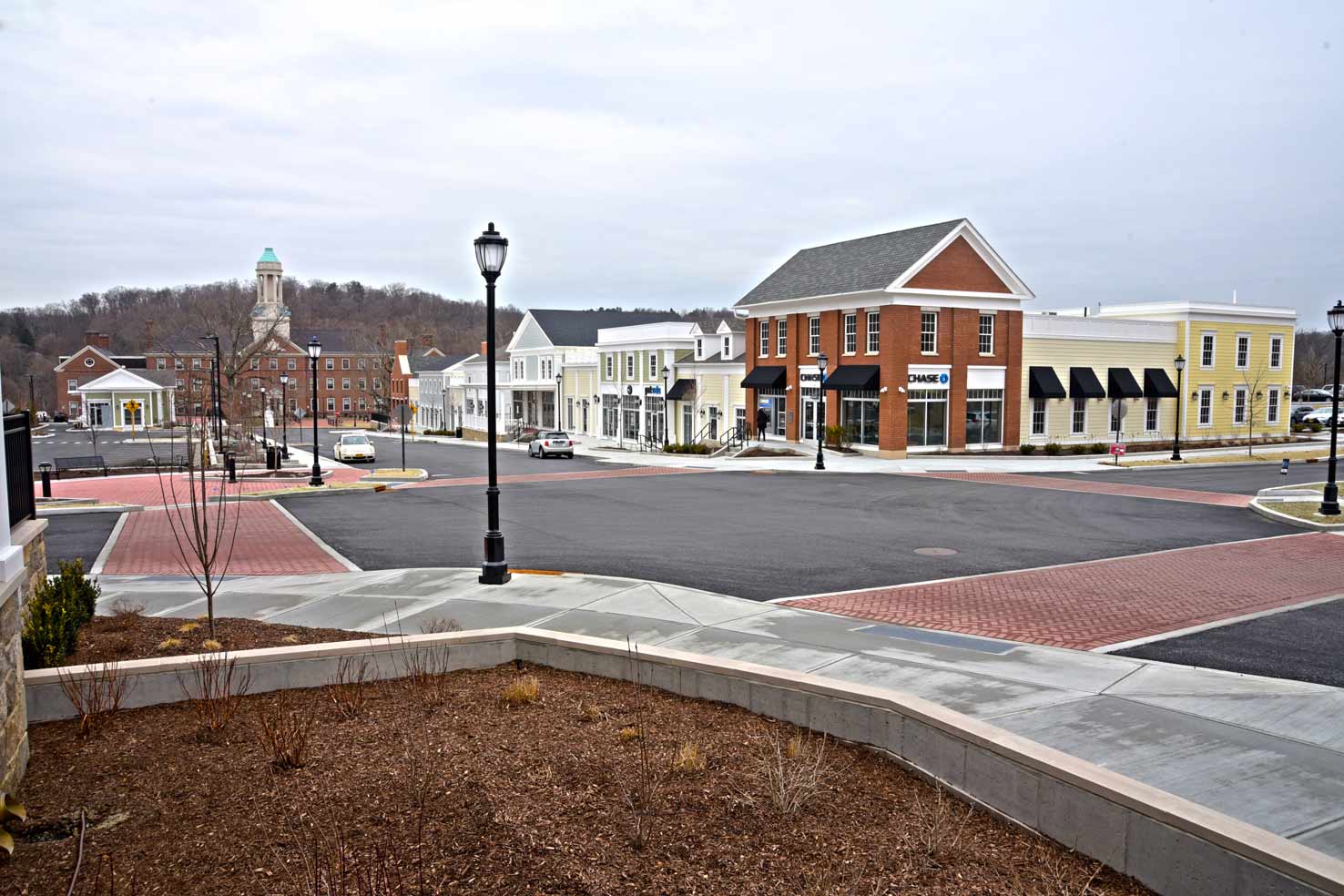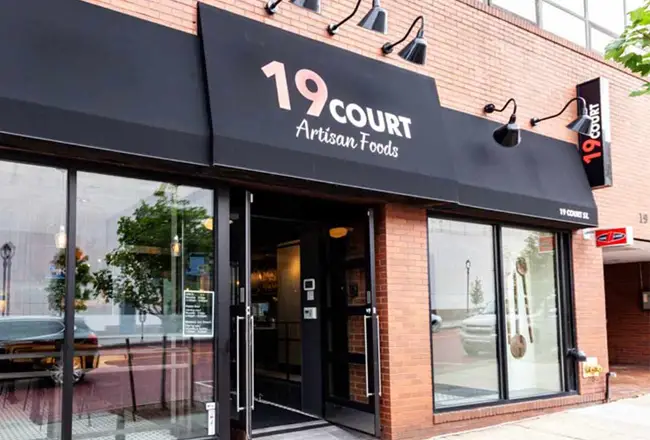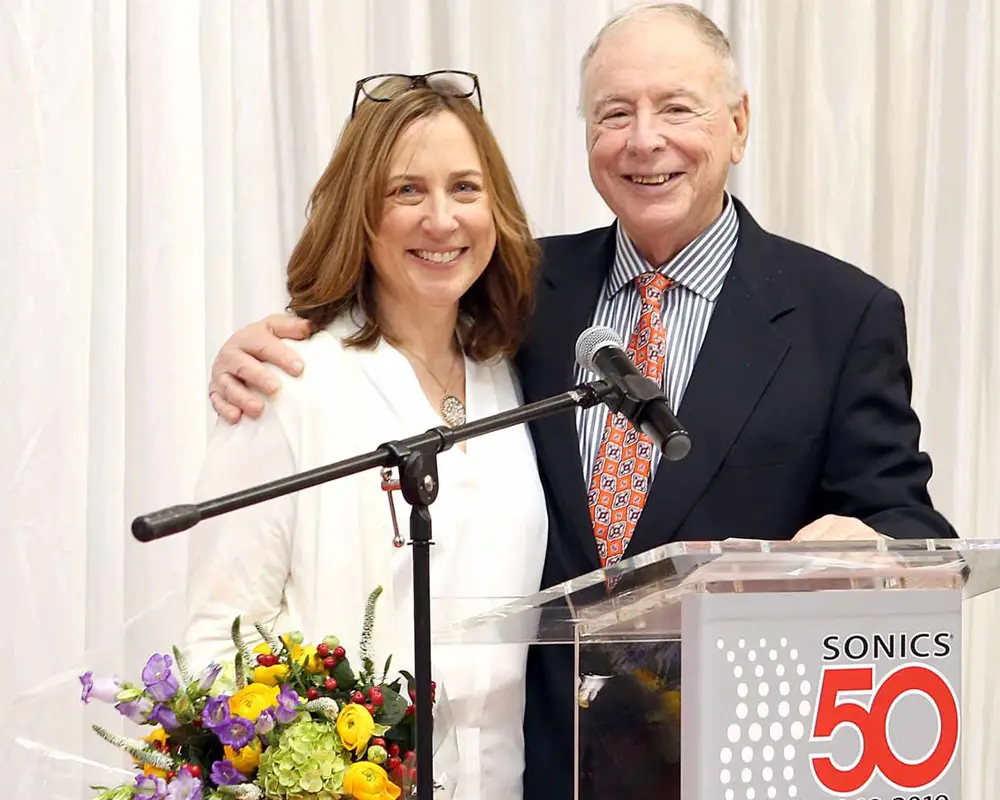
Felix T. Charney, managing director of Summit Development, which is headquartered in Southport, Connecticut, and has offices in Danbury, Chappaqua, New York, and Tavernier, Florida, expects to have the retail space at Summit”™s Chappaqua Crossing project 97% leased by September.
“The project was behind schedule on all fronts and it was supposed to have been completed probably 18 months ago. We initially had a significant amount of leasing momentum after we announced Whole Foods and Life Time, but a lot of that momentum ebbed when we were unable to commence construction. It more or less continued to ebb until the project began to materialize,” he told the Business Journal.
Chappaqua Crossing is a mixed-use project on the former Reader”™s Digest property. The retail/commercial component of the project is developed and owned by Summit in partnership with the Grossman Companies of Quincy, Massachusetts. The retail component has 120,000 square feet of space in a shopping village configuration.
The tenant list includes Whole Foods, 40,000 square feet; Life Time Athletic, 40,000 square feet; Pet Valu, 3,300 square feet; Chase Bank, 3,200 square feet; Fidelity Investments, 5,200 square feet; Verizon, 1,500 square feet; Compass, 4,100 square feet; and the boutique ROCKS, which opened on May 9 in a 1,627-square-foot space.
“We have leases pending with three food-service facilities and other users,” Charney said.
The jewelry, gifts and home décor boutique ROCKS has been operating successfully in Armonk. “We are so excited to be opening a second location in Chappaqua Crossing,” said store owner Tanya Tochner. “I love this community. I have lived here for 18 years and raised my family here,” she said.
Charney pointed to the retail component”™s anchor tenants. “We”™ve been very fortunate, in an Amazon-affected environment, to have the critical anchors that are theoretically immune from the Amazon effect: food and fitness. Ironically, Amazon owns Whole Foods, but in terms of retail today, it”™s a much more challenging environment and if you have anchors that require the customers to visit the store, either for services or experientially, today they tend to be more successful and, in that regard, that”™s what this project is all about.”
The Chappaqua Crossing property consists of 116 acres in the Chappaqua section of the town of New Castle. The site is just off the Saw Mill River Parkway and near Chappaqua”™s Metro-North train station. The cost to develop the retail portion of Chappaqua Crossing has been estimated as $50 million. Also on the site are about 500,000 square feet of office space, 64 apartments, green space and the 425-seat Chappaqua Performing Arts Center, which had been the Reader”™s Digest auditorium. Construction of townhomes on the site is expected to begin later this year.

In 2004, the partnership of Summit Development and Greenfield Partners was selected from among more than 100 candidates to buy the Reader”™s Digest property. Summit Development LLC is a privately held diversified real estate investment, development and management company. Greenfield Partners is a leading real estate investment manager.
The Grossman Cos. has a portfolio of about 2.5 million square feet of retail, office, industrial, self-storage and residential properties throughout southern New England.
Wilder-Balter Partners converted the original 1939 Reader”™s Digest headquarters building into apartments and has full management responsibility for the apartments at Chappaqua Crossing.
“The last challenge we face is completing some off-site improvements at Route 117 and Roaring Brook Road,” Charney told the Business Journal. “The permitting and approval process here was daunting, expensive and substantially affected our scheduling. On the other side of that conversation, the challenge to developing in communities like Chappaqua ultimately creates a very desirable product because it is so difficult to get anything approved. So, I certainly think that the uniqueness of our project has contributed to our leasing success.”
Charney noted that Summit has been in business for 38 years with 100 projects under its belt. “We made our living working in Fairfield and Westchester counties. These are high-barrier-entry markets that have always had extremely limited land supply and you”™re forced to be resourceful, and part of that resourcefulness has you repurposing older buildings,” he said.
Charney cited some examples: “We turned a brownfield defunct metals factory in Fairfield into our first Whole Foods. We turned an old defense plant in Norwalk into a mixed-use residential office project. We turned downtown South Norwalk into a residential, retail and office component.” Charney also pointed to Summit”™s purchase last October of the 1,300,000-square-foot former Union Carbide headquarters, the Matrix Corporate Center in Danbury, which is intended for repurposing.



















